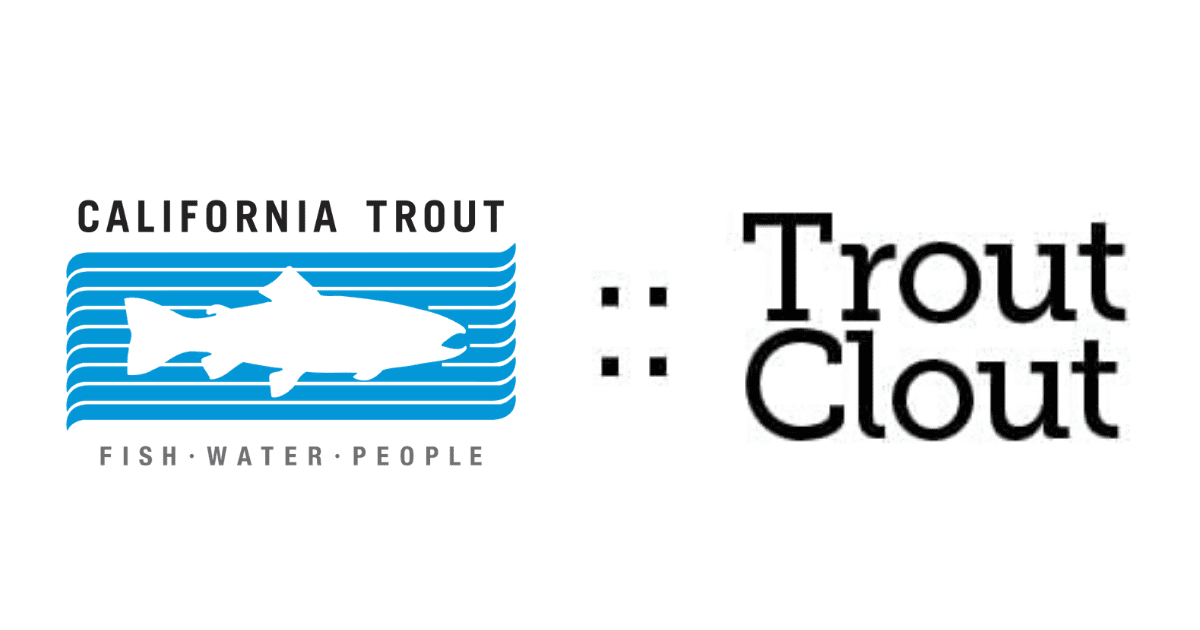Trout Clout – Vote NO on SB 386
California Trout is a member of the California Hydropower Reform Coalition and strongly opposes SB 386 (Caballero), which modifies California Renewables Portfolio Standard (RPS) Program for irrigation districts (and potentially other power providers).
Instead of helping California to lead on addressing and adapting to climate change, this bill would take us backward. SB 386 undermines the intent of the RPS Program to develop new renewable energy sources in California to combat climate change. The bill proposes RPS-eligibility for certain existing large hydropower facilities owned by Modesto and Turlock Irrigation Districts, removing their incentive to develop new renewable energy sources and undermining the goal of the RPS program. The Districts have demonstrated no need for this exception and this bad bill will chip away at California’s long-standing exclusion of large hydropower from the RPS Program.
Please ask your Senator to pledge their NO VOTE on SB 386 this week!
Here is the Senate Bill, CHRC’s opposition letter, and the committee analysis for those that would like deeper background. If you have any questions about the bill or any of the information below, please contact Kelly Catlett at the Hydropower Reform Coalition.
Talking Points
As you know, California made history last year by passing SB100, which accelerates the time frame to increase our State’s renewable energy portfolio standard (RPS) to 60% by 2030. Well, the ink is barely dry and special interests are attacking this goal by carving out loopholes. A new bill, SB386, has been introduced which will allow existing large hydropower (dams) to count toward the 60% RPS for two irrigation districts. Existing large hydropower has never been counted toward the RPS and if passed, these districts will have little to no incentive to add to their renewable portfolio before 2030. Moreover, this will create a precedent for other districts to seek the same exemption, effectively gutting the 60% goal of SB100. Read More HERE.
Take Action Today!
Here is what you can do:
- Call your state Senator today to Vote NO on SB 386.
Since this could be headed to the floor very soon, every Senator needs to hear from their constituents ASAP! Please call 3 Senators if you have time: (Find who your Senator is here: http://findyourrep.legislature.ca.gov/)
Some SoCal phone numbers:
Steve Bradford (SD 35) (voted “YES” in committee) — (916) 651-4035
Ben Allen (SD 26) – (916) 651-4026
Henry Stern (SD 27) (Vote NO in committee, thank him!) — (916) 651-4027
Maria Elena Durazo (SD 24) — (916) 651-4024
Anthony J. Portantino (SD 25) — (916) 651-4025
Holly Mitchell (SD 30) — (916) 651-4030
Sample Script: “Hello, my name is ____ from ___(city). I’m calling to express my opposition to SB 386, a bill that would effectively gut the renewable energy goals set forth in SB 100 by allowing power from large hydro dams to count toward the 60% renewable by 2030 standard. Climate change is an emergency and the nation is counting on California to lead the way in environmental reform, not undermine our own progress. Can I count on Senator to vote NO on SB 386 on the Senate floor next week?”
- Tweet/Post about it! Please feel free to use one of these graphics and hashtag #SaveSB100!
Sample Tweets to your Senator:
Hey @mysenator- Don’t rollback our clean energy progress! California just made history with 100% clean energy, but special interests are trying to weaken the bill. Oppose #SB386 and #SaveSB100!
#SaveSB100! Stop special interests that are trying to weaken California’s game-changing 100% clean energy law. @mysenator- Vote NO on #SB386 and keep us moving forward to a cleaner, healthier, more resilient CA
California’s game-changing 100% #cleanenergy law is under attack by special interests! @mysenator- #SaveSB100! Protect our communities & our climate – Vote NO on #SB386
Please ask for a NO VOTE on SB 386 this week! There is no time to waste!!
OPPOSITION:
California Hydropower Reform Coalition
California Wind Energy Association Environment California
California Trout
Environmental Defense Fund
Independent Energy Producers
Natural Resources Defense Council
Sierra Club California
The Utility Reform Network
Union of Concerned Scientists






